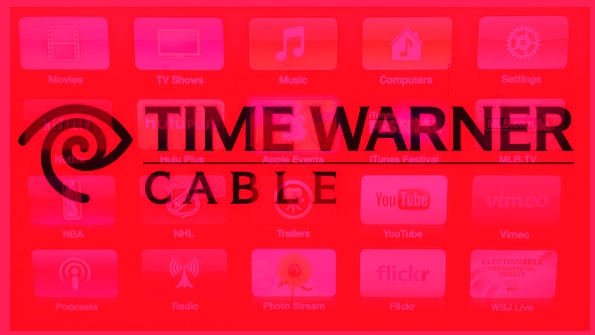Is Time Warner Working to Kill Your Streaming Web Entertainment?

Several news outlets including Bloomberg are reporting this week that Time Warner Cable (TWC) is aligning content incentives that are designed to keep programming on its services and prevent it from appearing on competing Web-based entertainment services such as those from Apple, Google and Roku. Time Warner has hundreds of contracts in place with as many providers, which favor keeping shows on TWC. But how can broadcast networks ready themselves for a future of streaming TV devices?
Telecommunications providers, Internet-based Web networks and traditional cable television companies are now in a dash to secure as much content as possible, but also to lock it in with contracts. Cable has traditionally worked this way, offering networks a large pipe, high penetration and market share to reach the masses. Although some headway has been made via the branding initiatives of Dyle, which offers mobile devices that pick up local OTA HDTV to Aereo, which allows subscribers to receive local HD television affiliate programming, the real monopoly started and continues with cable television. Whereas cable not so long ago only had to content with a few satellite providers for marketshare, companies like TWC now have many more competitors via the Web, all clamoring for a slice of the pie. Because cable television has been working for years on building a programming fortress, dismantling will likely take just as long, but it could be sped up depending on customers' expectations and interests.
Consumers have often wondered why they need to buy 900 channels to get the handful that they really want, and up until recently, they’ve been told that’s just the way it goes. But as streaming media becomes more prevalent, and many options are cropping up such as Roku 3, Apple TV and Google TV, all with mobile and tablet interactions and second-screen features, the public may not be taking the 900-channel deal quite so lightly. Companies like Intel, Apple and Google are not only working to cut programming deals with networks, but also working to unhinge a tightly locked, if somewhat rusty, monopoly on content that has existed for decades.
There is minimal proof that TWC is offering high incentives to keep networks on cable-only, but anyone could see there is a lot riding on this, and that it would make perfect sense for them to do it. What is happening though is because it's so hard to pick these locks, streaming networks are instead developing their own networks to compete with TWC channels. Netflix, Crackle, Hulu Plus and others are highly focused on producing original and engaging programming, as well as rounding up movie and TV production companies, so consumers may soon see little need to pay hundreds a month for hundreds of channels just to get a handful of their favorite shows. When HBO has been non-committal about unbundling HBO and making it available without a cable TV subscription via HBO Go streaming, it does remind us of all the contract structures in place that help keep it locked more into cable TV.
The truth is that HBO most likely will eventuality become unbundled and be available separate, and that is less about TWC and more about Netflix and other companies becoming the next wave of HBO’s. Soon TWC’s locked-stable advantage will become more of a hindrance, and channels will need to break free to compete on the level playing ground that is the future of television: mobile and Internet streaming. Time Warner Cable may be able to offer incentives to keep programming on their networks currently, but whether it can do that during the long haul, is pretty undetermined.
The professional video industry's #1 source for news, trends and product and tech information. Sign up below.
